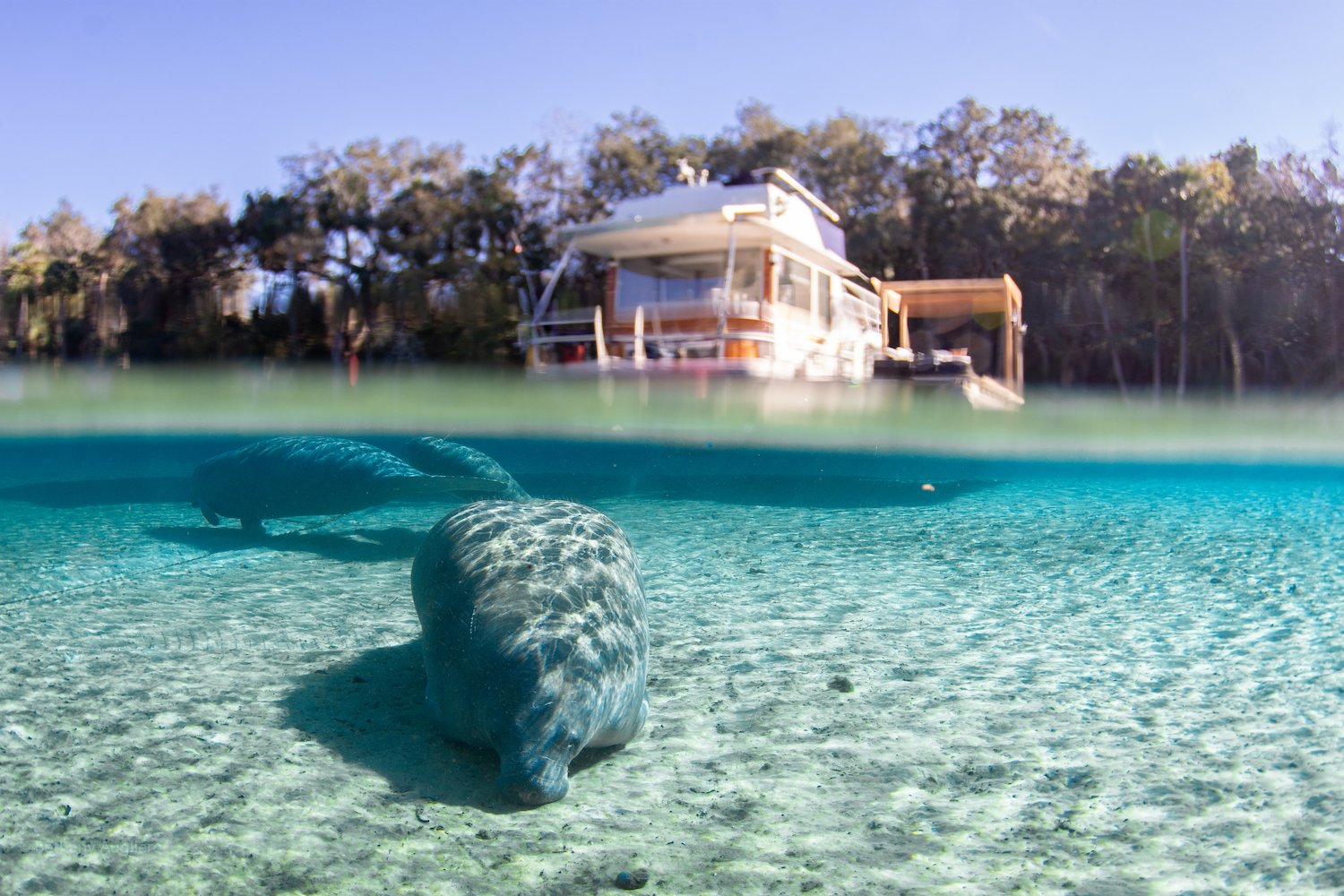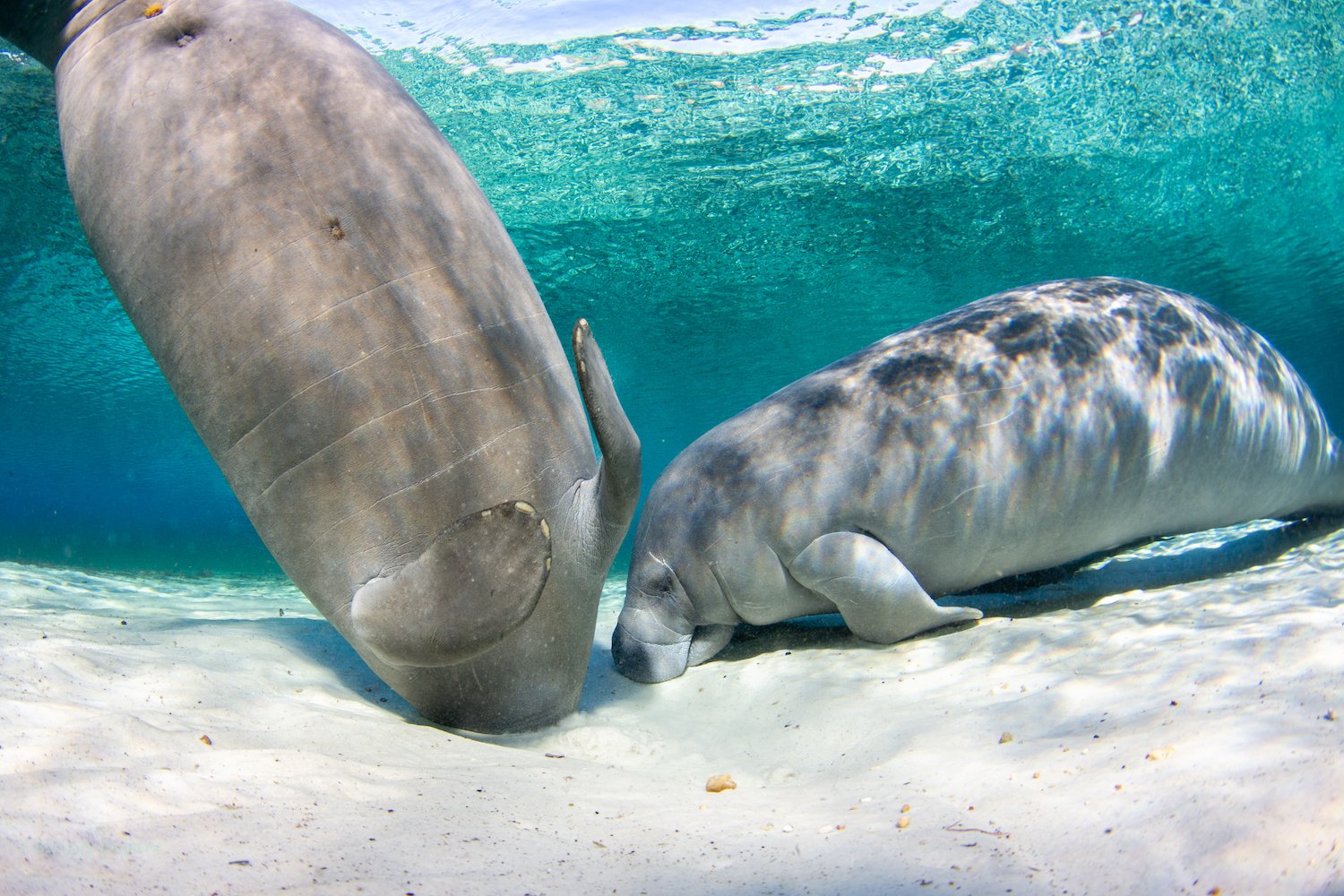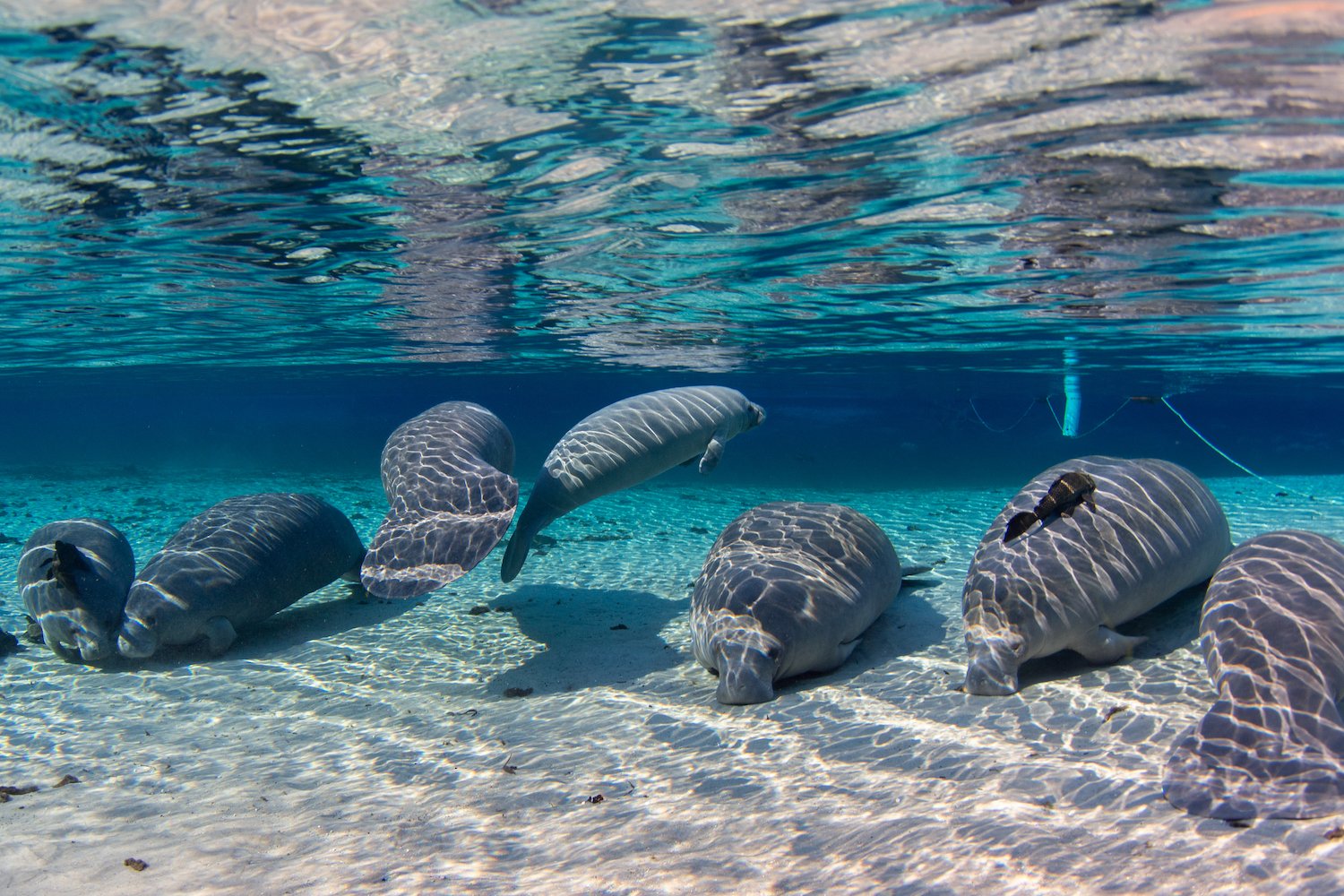Snoozing “Sea Potatoes”
As manatees flock to warmer waters to escape the cold, East Coast Floridians can visit the Manatee Lagoon educational center in Riviera Beach, FL, to glimpse the gentle giants. But, there’s another place where you could encounter these animals — the freshwater springs.
When the temperatures drop, manatees visit the springs to rest and conserve energy. Despite their large size (a typical manatee weighs half a ton), they have relatively little body fat. They can’t tolerate temperatures below 68 degrees Fahrenheit for an extended period of time, and the springs have a constant temperature of about 72 degrees. The springs are an especially important place for mothers and calves who need to nurse.
If you’re lucky enough to find manatees, remember to give these animals space and passively observe them without approaching too closely. In some places, the entire spring will shut down during extreme cold snaps to let the animals rest peacefully.
A couple weeks ago, I took a trip to the springs with my family and it was 37 degrees Fahrenheit in the morning. Dozens of manatees were sleeping, including many moms and calves. While I snorkeled around with my 4-year-old son, it was the perfect opportunity to talk to him about responsibly viewing wildlife. The calmer we stayed and the more space we gave, the more interesting behavior we could observe.
At one point, a feisty little calf started zooming around the shallow swim area, chirping and squeaking. He tried to play with us while his mother slept. The only reason I think this happened is because we were not approaching aggressively and scaring them off.
After speaking with the local park ranger, I talked about how most of the people I saw were respectful, and he agreed. But sadly, he also informed me that he’s witnessed people swimming over and punching and kicking the animals. They were reported and fined.
Right now, manatees face threats. The seagrass is dying and they are starving. Manatees have no natural predators. They need a warm-water habitat to survive, such as the natural springs. Other threats include injury and death from collisions with boats and entanglement with fishing gear. The two greatest threats to manatee survival include the availability of warm-water habitats during the winter, and injury or death from collisions with boats, and red tide events.
To report a sick, injured, dead, or tagged manatee, call FWC's Wildlife Alert Toll-Free Number: 1-888-404-FWCC (1-888-404-3922), press "7" to speak with an operator.
Follow me on Instagram: @BethanyAuglirere
To view more of my work: www.bethanyaugliere.com
Written and photography by Bethany Augliere



